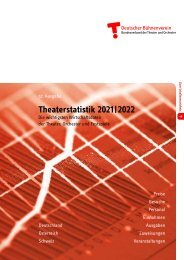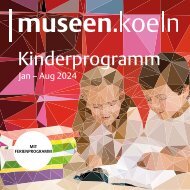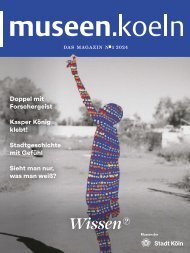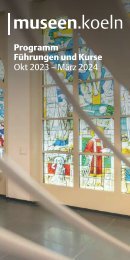Malteser International Annual Report_E
- No tags were found...
Create successful ePaper yourself
Turn your PDF publications into a flip-book with our unique Google optimized e-Paper software.
According to the United Nations, more than 80 percent<br />
of countries have insufficient financial resources to meet<br />
their national water, sanitation and sanitation targets. In<br />
addition to the unavailable funding, there is often a lack of<br />
technical know-how to independently develop central<br />
water supply and reliable sanitation systems.<br />
Arno Coerver is<br />
our Global WASH<br />
Advisor and helps<br />
our project regions to<br />
implement strong and<br />
sustainable WASH<br />
(water, sanitation and<br />
hygiene) programs<br />
Dirty water can be deadly to Children<br />
Every day, 700 children under the age of five die from preventable diseases<br />
linked to unsafe water.<br />
à People urgently need clean water, sanitation and soap to stay<br />
healthy.<br />
SOURCE: UNICEF, 2018<br />
How does <strong>Malteser</strong> <strong>International</strong> contribute to better<br />
water supply and sanitation for people in need?<br />
AC: We are primarily concerned with people who are<br />
least able to help themselves; children, women, elderly<br />
people, people with disabilities and refugees. Much of our<br />
work is technical in nature. We develop new water supply<br />
systems for people in need and rehabilitate existing ones.<br />
These include boreholes, taps, and rainwater harvesting<br />
systems. In Haiti for example, we just completed the construction<br />
of a latrines and an aqueduct for disadvantaged<br />
communities in slums. This technical part is complemented<br />
with ‘soft’ measures, such as training on good hygiene<br />
and maintenance of the water supply systems.<br />
Improving access to safe water and sanitation facilities<br />
leads to healthier families and communities. However,<br />
knowledge of good hygiene practices is equally important<br />
to maintain a healthy life. For many poor people,<br />
some hygiene practices may be unfamiliar. That is why<br />
we engage in effective hygiene promotion. For instance,<br />
we are cooperating with schools to integrate hygiene<br />
education into their lessons. We also work with the<br />
German Toilet Organization, which has produced great<br />
resources for hygiene education. We are supporting the<br />
gradual implementation of strategies designed to improve<br />
water supplies, sanitation and hygiene in schools by using<br />
the “Fit for School” approach designed by the Deutsche<br />
Gesellschaft für <strong>International</strong>e Zusammenarbeit (GIZ).<br />
Do you reckon the global community will reach its<br />
WASH sustainable development goal by 2030?<br />
AC: The goals are indeed ambitious and require constant<br />
efforts from all sides. But we are making important<br />
progress from year to year, and that is something<br />
that makes me feel positive.<br />
<strong>Malteser</strong> <strong>International</strong> constructed more than 30<br />
solar-powered water pumps and distribution systems<br />
in settlements across northern Uganda, reaching over<br />
120,000 South Sudanese refugees and their host communities<br />
with clean water. These systems were handed<br />
over to maintenance committees in the settlements.<br />
In Nigeria, we are providing<br />
people displaced<br />
by the Boko Haram<br />
conflict with clean<br />
drinking water.<br />
PHOTO: EMILY KINSKEY<br />
Water and Sanitation Inequality<br />
• 2.1 billion people around the world do not have access to clean water<br />
• 4.5 billion people have no access to sanitation<br />
• 73% of people in the least developed countries do not have soap<br />
à <strong>Malteser</strong> <strong>International</strong> is working to achieve #Water4All<br />
SOURCE: UNITED NATIONS, 2018<br />
27


















